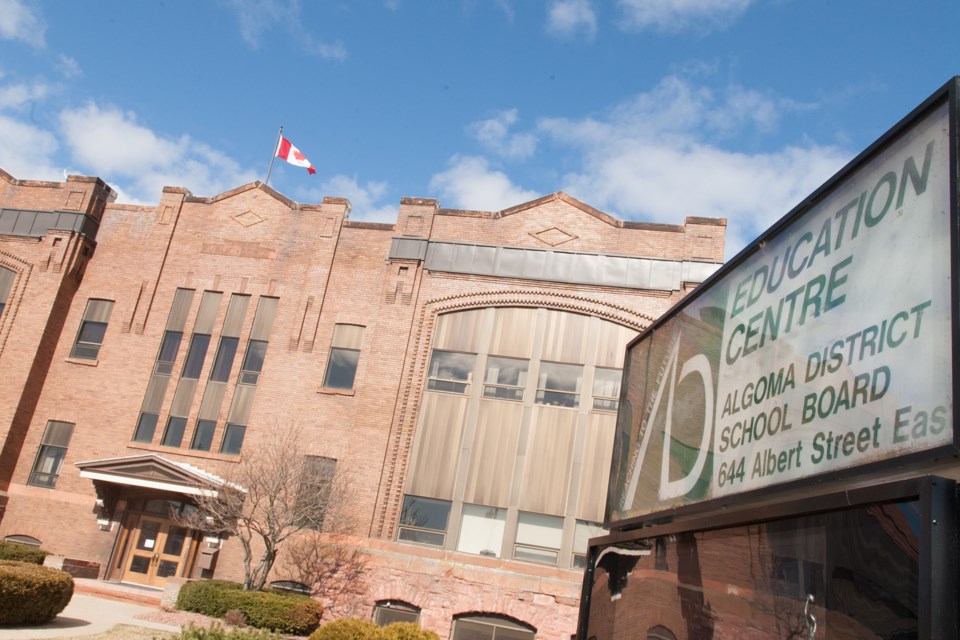A hold on further school closures in northern and rural areas announced by the Ministry of Education June 28, along with an additional $20 million for northern and rural school board needs beginning in September, will not affect the Algoma District School Board’s plan to close elementary schools in Blind River and Wawa.
“Our processes in those two areas are complete and are not impacted by this announcement,” replied Lucia Reece, ADSB director of education, in an email to SooToday.
“Also, both Blind River and Wawa will be maintaining schools in their communities based on our plan,” Reece stated.
ADSB trustees voted June 20 to act on recommendations from administration to move Blind River Public School’s JK to Grade 8 students, staff and programming to a JK to 12 facility at Blind River’s W.C. Eaket Secondary school.
Those students will still be at Blind River Public School for an undetermined period of time, as the ADSB will be applying for Ministry funding to retrofit W.C. Eaket to accomodate Blind River Public School’s students.
The board also voted June 20 to move the JK to Grade 8 student population at Sir James Dunn Public School in Wawa to a JK to 12 facility on the Michipicoten High School site.
As with Blind River, time and government funding is needed for Wawa make Michipicoten ready to accomodate Sir James Dunn Public School students.
The government announcement may affect some Huron-Superior Catholic District School Board (H-SCDSB) plans.
“(In Elliot Lake)…we are currently exploring the possibility of amalgamating Our Lady of Fatima with Our Lady of Lourdes. At this point, we are still exploring alternatives and will comply with the ministry's directives about delaying school closures to meet the needs of our students and communities,” replied Rose Burton Spohn, H-SCDSB director of education, in an email.
The government announcement reads “school boards will not begin any new reviews (the process of closing schools), with the exception of those reviews which would support joint-use projects between school boards or for student safety.”
The announcement stated the government will provide “increased funding for co-operation between school boards including planning and building joint-use schools.”
That fits in well with past Huron-Superior projects, as well as another on the drawing board.
“In the north, we have entered into several joint-use arrangements with the Conseil scolaire catholique du Nouvel-Ontario in Hornepayne and Wawa. We are also engaged in plans with Nouvel-Ontario for a joint-use school in Espanola and we await final ministry approval on this project,” Burton Spohn wrote.
The amalgamation of four Sault H-SCDSB elementary schools into a larger, refurbished facility at St. Basil Catholic Elementary is moving along and is scheduled to go ahead in September.
“I think the intent is to ensure there is sufficient time to investigate all possible options before closing a school in a community. To be economical and fiscally responsible, there is much interest in creating community hubs wherever possible, and I think the Ministry is listening to feedback and trying to provide a new timeline to allow such conversations to occur,” said ADSB director Reece.
The Ministry consulted with school board officials and the public in 10 northern and rural communities before it made its June 28 announcement.
ADSB and H-SCDSB officials confirmed the Ministry held consultations in Wawa in May.
It isn’t yet known how the additional $20 million for northern and rural school boards announced by the Ministry will specifically benefit the ADSB, the Huron-Superior Catholic District School Board (H-SCDSB) and French language boards with schools in the Sault and area.
“We do not yet have details on additional funding, however, any support we receive will obviously be welcomed and will support our work in the areas where we are submitting plans to the Ministry,” Reece replied.
The province stated it wants to aim the funding at improving French immersion, arts education and guidance counselling in rural schools, as well as improve student transportation options such as late bus runs and mobile e-learning through tablets or Wi-Fi.
